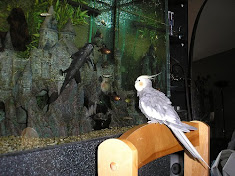 |
| Kangaroo Court by Prairie Kittin |
The group of people that started making animal rights a big issue were the puritans who managed to pass some animal protection laws in England. For the US, the first animal rights act was passed in 1641 in Massachusetts. Although all of us know that killing animals is wrong, we still do it because they give us so much conveniences.
Also in history, there are those people who are somewhat for animal rights but not entirely for it. They don't mind eating animals but are against the use of animals for experimental use in medical research. They believe that animals don't deserve all the rights, only a few. There are people for animal rights as well as people who are not for animal rights and ever since it became an issue, when one side wins, the other side would still continue to do as much as possible to lessen the other side's victory. Like in 2007, the U.S animal rights people managed to pass a legislation that ended horse slaughter in the U.S. but live horses were still exported to be slaughtered outside of the U.S. Then the horse meat would get shipped back to the U.S.
There have also been animal rights extremists in the past who would slash the tires of a hunter's vehicle and break a lot of hunting equipment. One group of people in 1973 even burned down a pharmaceutical research laboratory. Spain became the first country to grant legal rights to animals, which were the apes, and this happened less than a year ago in June of 2008. That was a landmark event for animal rights. One of the biggest factors in history of animal rights is religion. Some religions absolutely prohibit the killing of certain animals. But some religions used to sacrifice animals. And then there are those religions where the topic of animal rights is debatable. People who aren't for animal rights say that humans have dominion over everything which means that they should be allowed to do what they want to other species. The strong survive and the weak die out (Natural Selection). Some people who are not for animal rights can say that animals have been eating other animals for millions of years, so why is so much more wrong when a human eats another animal?
Why are animal rights activists spending so much effort to stop us from eating/killing an animal and not spending any effort on preventing something like a lion from eating a deer? Animal rights activists probably blame humans more because we have a choice to not eat animals, but we still do it anyway. Today when you ask someone if they are for animal rights, they might say something like: "I don't like the killing of animals but I still like to eat them" and that's where it stands for most people right now.
Author Resource: Brian Tse is a pet owner and would like to spread the message to people who truly care about animals, about the origins of animal rights. Hopefully this would provide more insight for the animal lovers out there. He also dedicates some time to helping people with math, you can visit his algebra 1 worksheets site at http://www.mathonlinework.com or visit animalrights.change.org
Article From Pet Article World



0 comments:
Post a Comment